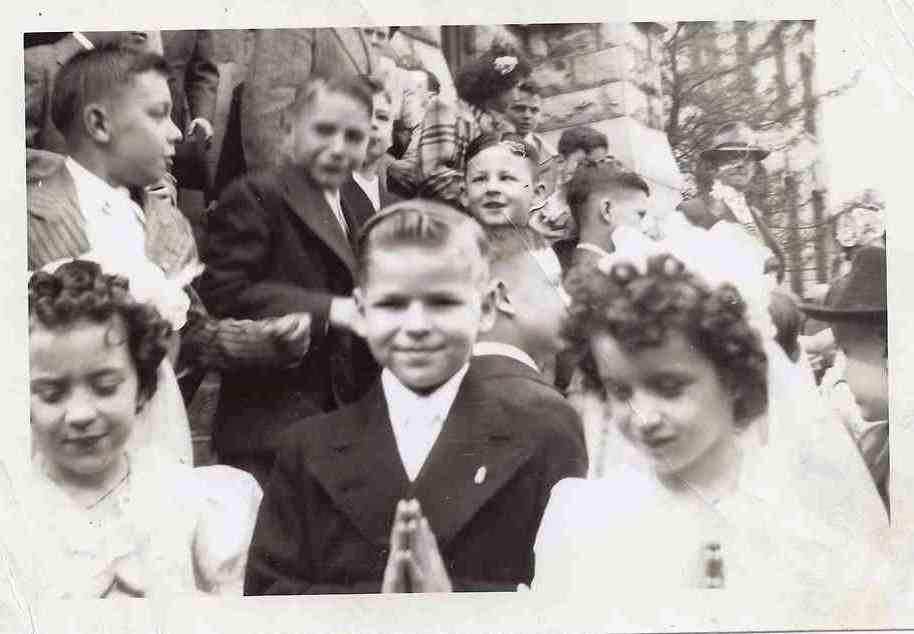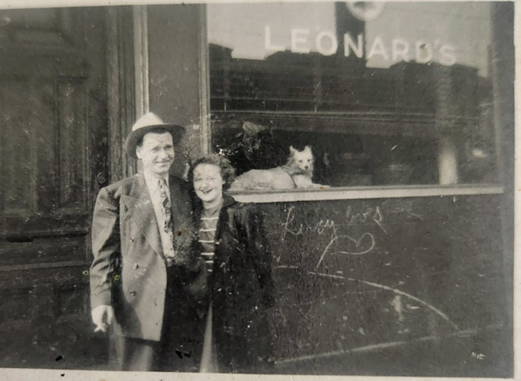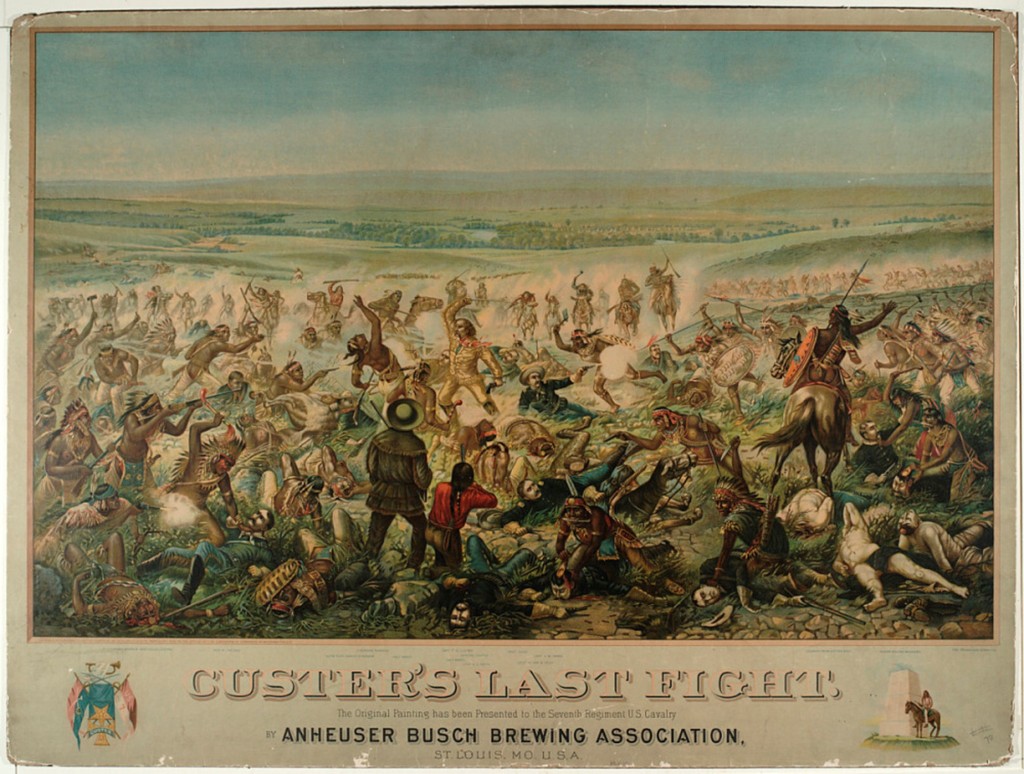BY: JAMES F. O’NEIL
“You can’t go home again.”—Thomas Wolfe
I could see Uncle Leonard’s tavern from our front window. If I ran to that apartment window at 1623 West Buren in Chicago, I could look east and look west. I could see the spire of our church, Saint Jarlath’s, where I attended 1st and 2nd grades, and made my First Confession and First Holy Communion.
First Holy Communion
Our apartment home, with the “L” in the back alleyway, where my sister and I played among dirt and old cars and just junk, our apartment is long gone out of our lives since the condemnation and razing of the neighborhood to make way for the future Congress Street Expressway.
Evicted, we made our Joad Family-like trip to the South Side, and new lives for the next ten years.
The years preceding our exodus were filled with memoriesofatime—and writing this now (and reading it at some future time) encourages my brain synapses to fire up again and again. There is no lack of memory brain matter from some-seventy years ago.
But about that bay window in our apartment. (The song lyrics humming around now: “I can see clearly now the rain is gone . . . the rainbow . . . a bright sunshiny day . . ..”) On a clear day I could see forever. I could see Uncle Leonard’s tavern to the east, not far past “our border,” Ashland Avenue (1600 West as the Street Directory shows).
Ashland was as far as we were allowed, my sister and I. In our neighborhood, it was the busy street to the east, too busy for the likes of young children to cross over to the other side.
“Where do you live?” “Ashland and Van Buren,” we would answer. On the corner, the drug store and the mailbox, two significant markers then in our lives. Where else to get Adams Black Jack chewing gum after mailing a letter?
(I recall one incident when I was so excited about going to the drug store that I mailed the letter first—then realizing it had no stamp. In the drug store I tearfully related my plight; I cried at the realization that there was nothing I could do except tell my mother about my young impetuousness wanting gum equals getting stamp, mailing letter, then the gum. Good old-fashioned Catholic delayed gratification gone awry. “Live and learn.” I’ve not forgotten.)
And not to forget that bay window: I could see Leonard’s Tavern from the apartment. I could see my dad’s (our) 1937 Plymouth parked in front of the tavern, stopped there after his work route.
MARTY O’NEIL AND LILLIAN SCHUMA
That tavern was a real watering hole for my sister and me as our parents frequented that place as a social club on Saturday nights.
What I remember most about Leonard’s Tavern was the painting over the bar, the smells from the “Men’s,” and the story my dad told us about the foiled robbery.
The story of General Armstrong Custer has always fascinated me in my search for “the real story.” I didn’t know much about the cause of the conflict and the Battle of Little Big Horn. What I learned came from the Anheuser Busch replication of Custer’s Last Fight which was displayed facing the bar. What ever possessed my Uncle Leonard (not a real uncle but my dad’s good friend whom we knew then as “uncle.”) As a youngin in first and second grade I was ignorant of it all.
So, there is the tragic General Custer, frozen in time, surrounded by bodies and 7th Cavalry troopers fighting to their deaths. I would sit on a bar stool, transfixed by the glory of it all, ignorant of the truth and the stupidity of the foolhardy, but transfixed by the smoke of gunpowder, the gore of it all, riles and Custer’s sword raised, tomahawks dealing death, knives scalping, all the din of battle.
What was this reproduction painting doing in the tavern in Chicago? I never found out why—or how it got its place. What I am sure of is that this painting led me down a path of history and my trip through They Died with Their Boots On (1941), time with Errol Flynn. Especially the paths of war and battles, D-Day, Saving Private Ryan, Audie Murphy (heroic American soldier), A Bridge Too Far.
There sits this kid on a bar stool, head in hands, elbows on the tavern bar, gazing at and lost in a painting, compliments of a beer company. What a strange sight (perhaps a Steven Spielberg moment?)
While my parents were drinking, and laughing, I drank “orange pop.” Always orange pop, never “soda.” I don’t recall darts and dartboards, pool tables (not yet wide screen television with football or Days of Our Lives), or card playing. Just juke box music and laughing.
“I have to pee.”
There was the toilet room: “Men’s,” a dark, green room, with a ceramic trough that had a pipe running its length, constantly dripping water that ran to a center drain. I was hardly tall enough to reach to urinate. But I managed. And so many troughs later, I was urinating in the same kinds in England and in other “bathrooms” in my life, with smells of tobacco smoke and urine, and wet damp floors. And plumbing pipes dripping water.
My dad was hardly ever seen without a long sleeve shirt. He always wore an undershirt, a “Dago-T,” with its straps and body-builder shape. My dad had strange-looking scars on his upper left arm, scars like circles and indentations. We didn’t often see those marks, but we knew the story about how he got them.
The entrance to “Leonard’s” was on Van Buren Street, at street level. The “joint” was part of a building above. As you entered, there were no stairs or steps down, but a kind of ramp which led you into the bar area.
I remember pipes or railings to hang onto as I made my way down the ramp. Then you were there: bar, tables, chairs, talk, and drinks.
My dad had many friends, some of them on the police force. (“Uncle” Sam Spinelli was one of my favorites.) The story goes that one evening my dad and one of his policemen friends were going into the tavern (long before he and my mom married; he was a young man). As they made their way in, and down the ramp, my dad’s policeman friend shouted that a robbery was taking place. A blast from a shotgun killed the policeman. As he fell, my dad tells, my dad went down but received a shotgun blast to his upper left arm and shoulder. What took place after that I don’t ever remember hearing about except that he was gravely injured and nearly lost his arm.
Thus, my dad’s scars.
The tavern is gone. After destruction, demolition, and building, the streets, like Van Buren and Ashland, do still exist and operate. I found a map to a Currency Exchange at 1600 West Van Buren, and the Chicago Transit bus has a stop at Ashland and Van Buren, both streets being major thoroughfares in the city, major routes to the downtown area and “The Loop.”
I have some great memories of growing up, some good, some bad, some not so bad. I have some great history, as I see it, containing narratives that are worth sharing with others.
For “No creative idea’s ever wasted.” [From the movie The Noel Diary, 2022]
© James F. O’Neil 2023 February





 Magical Mystery Tour
Magical Mystery Tour

